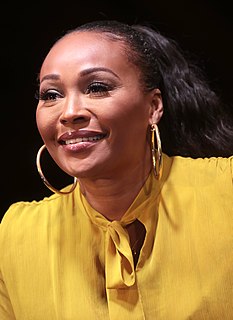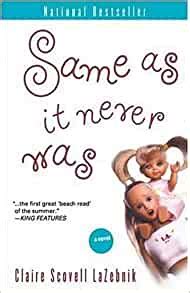A Quote by James E. Faust
One of the most difficult parental challenges is to appropriately discipline children. Child rearing is so individualistic. Every child is different and unique. What works with one may not work with another.
Related Quotes
Don't think that there's a different, better child 'hiding' behind the autism. This is your child. Love the child in front of you. Encourage his strengths, celebrate his quirks, and improve his weaknesses, the way you would with any child. You may have to work harder on some of this, but that's the goal.
Parental love is not contingent on the talents and attributes the child happens to have. We choose our friends and spouses at least partly on the basis of qualities we find attractive. But we do not choose our children. Their qualities are unpredictable, and even the most conscientious parents cannot be held wholly responsible for the kind of child they have. That is why parenthood, more than other human relationships, teaches what the theologian William F. May calls an “openness to the unbidden.
Please don't kill the child. I want the child. Please give me the child. I am willing to accept any child who would be aborted, and to give that child to a married couple who will love the child, and be loved by the child. From our children's home in Calcutta alone, we have saved over 3,000 children from abortions. These children have brought such love and joy to their adopting parents, and have grown up so full of love and joy!
Many toxic parents compare one sibling unfavorably with another to make the target child feel that he's not doing enough to gain parental affection. This motivates the child to do whatever the parents want in order to regain their favor. This divide-and-conquer technique is often unleashed against children who become a little too independent, threatening the balance of the family system.
A method of child-rearing is not--or should not be--a whim, a fashion or a shibboleth. It should derive from an understanding of the developing child, of his physical and mental equipment at any given stage, and, therefore, his readiness at any given stage to adapt, to learn, to regulate his behavior according to parental expectations.
Because adoption meets the needs of children so successfully, and because there have long been waiting lists of couples hoping to adopt babies and children, it would seem that the solution for abused or neglected kids was obvious. But not to the do-gooders. To remove a child from an abusive parent, sever the parent's parental rights, and permit the child to be adopted by a couple who would give the child a loving home began to seem too 'judgmental.'
For many observers, a child who has known nothing but war, a child for whom the Kalashnikov is the only way to make a living and for whom the bush is the most welcoming community, is a child lost forever for peace and development. I contest this view. For the sake of these children, it is essential to prove that another life is possible.






































